64 news posts
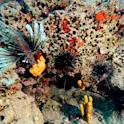
Life sciences
11 Dec 2025
Pandemic ‘beneath the surface’ has been quietly wiping out sea urchins around the world
Canary Islands as the ‘missing link’ in a global sea urchin killer pandemic

Featured news
02 Dec 2025
Dynamic duo of bacteria could change Mars dust into versatile building material for first human colonists
In this guest editorial, Dr Shiva Khoshtinat and co-authors present a bold approach for construction on Mars, harnessing microbial partnerships to transform Martian regolith into structural materials

Featured news
18 Nov 2025
Teeth of babies of stressed mothers come out earlier, suggests study
Infants of mothers with high levels of stress hormone age faster and typically have more teeth by six months of age

Featured news
11 Nov 2025
Vegan diet can halve your carbon footprint, study shows
Vegan diet cuts carbon emissions by 46% and land use by 33%, while delivering nearly all essential nutrients

Featured news
29 Oct 2025
Underwater robot ‘Lassie’ discovers remarkable icefish nests during search for Shackleton’s lost ship off Antarctica
In a remote part of Antarctica's Western Weddell Sea, an area once hidden beneath a 200-metre-thick ice shelf, scientists have uncovered a new and unusual phenomena: extensive maintained fish nesting grounds arranged in patterns.
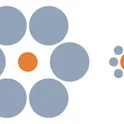
Featured news
20 Oct 2025
Do animals fall for optical illusions? What fish and birds can teach us about perception
Dr Maria Santacà describes how not only how fish and birds perceive their worlds, but also how ecological pressures shape the evolution of perception.

Life sciences
16 Oct 2025
Sniffer dogs tested in real-world scenarios reveal need for wider access to explosives, study finds
Access to range of explosives to train with would boost performance of detection dogs, suggests first validating study

Health
02 Oct 2025
Death toll from drugs has more than doubled worldwide over past three decades
Researchers used new statistical methods to analyze public data on the global health burden due to drug addiction. They showed that drug-related mortality has increased 2.2-fold between 1990 and 2021, especially in high-income countries, despite a 6% reduction in cases after correcting for population growth. This surge in the public health burden from drugs was greatest in the US, and likely due to the combination of opioids and cocaine and worsening social and healthcare conditions for drug users.
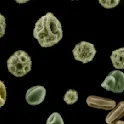
Featured news
30 Sep 2025
Natural antimicrobial drugs found in pollen could help us protect bee colonies from infection
Pollen gathered by honeybees contains antimicrobial-producing bacteria that protect the hive against disease
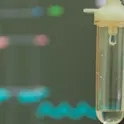
Featured news
23 Sep 2025
Lactate IV infusion found to trick the body into releasing a hormone behind that post-workout brain boost
Intravenous lactate is enough to trigger release of brain-rejuvenating hormone, also without physical exercise
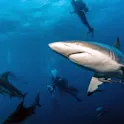
Featured news
10 Sep 2025
Meat from critically endangered sharks is commonly sold under false labels in the US
31% of products sold as ‘shark’ in the US are from species at risk of extinction
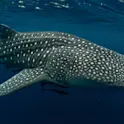
Featured news
28 Aug 2025
Nearly 80% of whale sharks in this marine tourism hotspot have human-caused scars
Human-caused injuries are common in endangered whale sharks off Indonesian Papua, but simple changes to local fishing practices could help protect them.
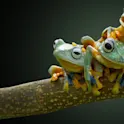
Featured news
20 Aug 2025
Most known species evolved during 'explosions’ of diversity, shows first analysis across ‘tree of life’
Majority of living species concentrated among few disproportionately rich groups with high rates of diversification, shows first-of-its-kind study

Featured news
12 Aug 2025
AI could soon detect early voice box cancer from the sound of your voice
Vocal fold lesions and early stages of laryngeal cancer alter acoustics of the voice, paving the way for AI recognition

Featured news
05 Aug 2025
Hearing loss lowers prospects of employment and higher income for young Americans
Researchers analyzed data from 27,656 Americans between 23 and 43 years old in the ADD Health study. They found that participants reporting to have poor or worse hearing had significantly lower educational attainment, a lower probability of being in paid work, and earned less than their peers. These negative impacts of hearing loss were especially pronounced for Black and Hispanic Americans. Suffering from tinnitus was not found to have any effect on these outcomes. The authors propose better access to hearing care, early screening, and workplace support, as well as reducing stigma, to level the playing field for people with hearing loss.